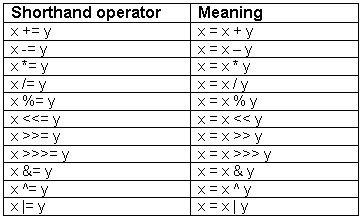JavaScript 3!!
Hello JS3! We started doing our JS3 this week. We are about to tackle about this lessons.
JavaScript Operators and Expressions
Expressions - is any valid set of literals, variables, operators ans expressions that evaluates to a single value. This value can be a number, a tring or a logical value.
Operators - JavaScript has assignment, comparison, arithmetic, logical, string and special operators. There are binary and unary operators.
Assignment Operator assigns a value to its left operand based on the value of its right operand. The basic assignment operator is equal ( = ), which assigns the value of its right operand to its left operand. That is, x = y assigns the value of y to x. https://developer.mozilla.org/en-US/.../Operators/Assignment_Operator
The Precedence of The Operators - If two non-assignment operators have the same precedence, they are evaluated from left to right. Thus y = 3+4+5; is evaluated as y = 7+5; or y = 12. Similarly, y = w*x/z is evaluated as y = (w*x)/z. If operators of a mixed precedence appear in an expression, the one with the highest precedence is performed from left to right, then the one with the second highest precedence is performed from left to right, and so forth. Thus z = 4/3 + 8%3 - 3; is evaluated as z = 1 + 2 -3; which is evaluated as z = 3-3; Similarly in if( a > b && c =< d), the expressions with the relational operators, a > b and c =< d, are evaluated first. Then, and only then, is the && used. cs.nyu.edu/courses/fall00/V22.0101-003/precedence.html
Types of Operators
Arithmetic operators take numerical values (either literals or variables) as their operands and return a single numerical value. The standard arithmetic operators are addition (+), subtraction (-), multiplication (*), and division (/). developer.mozilla.org › ... › Expressions and operators
Comparison Operators - JavaScript has both strict and type–converting comparisons. A strict comparison (e.g.,
===) is only true if the operands are of the same type. The more commonly used abstract comparison (e.g. ==) converts the operands to the same Type before making the comparison. For relational abstract comparisons (e.g., <=), the operands are first converted to primitives, then to the same type, before comparison. developer.mozilla.org › ... › Expressions and operators
Logical Operators -

And that's all for the week! Bye. :D
Thanks for reading! :)
Questions? Free to ask. :D




This comment has been removed by the author.
ReplyDelete